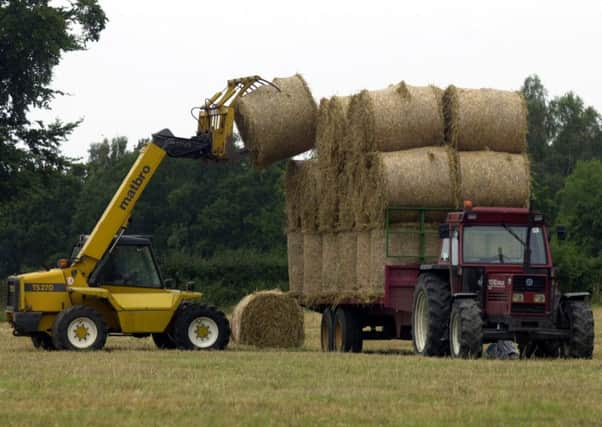Better safe than sorry is a useful phrase on the farm
This article contains affiliate links. We may earn a small commission on items purchased through this article, but that does not affect our editorial judgement.


This may have occurred 30 years ago but it is still easy to recollect the reaction. Machinery guards which had been cast aside in the heat of harvest were located and fixed back on. Power Take Off shaft guards were checked as these were known to be favourite items for the attention of the visiting inspector. Electric plugs whose reliability had been boosted by the use of a section of six inch nail as a fuse had more approved but flimsy safeguards inserted and old wooden ladders missing a rung or two were hung out of sight on the rafters.
And then there were the more basic often unguarded bits and pieces of machinery inherited from a previous era. What to do with them? The decision was taken they might be best left out in a field that lay well out of sight of the farm buildings.
Advertisement
Hide AdAdvertisement
Hide AdAll this activity was generated because someone was trying to protect life and limb in what was and remains a dangerous profession.
What a bunch of dumb clucks we were, especially as I need more than the fingers on both my hands (which, unusually in this business, still total ten) when I personally remember all those who have lost their lives in farm accidents.
The health and safety visits were but one of the inspections the farm received. Crop inspectors had been on the go since the 1930s as had milk inspectors. Both were necessary to lift some pretty ropey food production standards. There were also visits by Department of Agriculture officials, a regular occurrence following the introduction of farm subsidy schemes.
All of this remembrance was brought back to me on Christmas Day by social media where one farmer posted a message to the effect “where are all the inspectors today when I am working”.
He was not just referring to health and safety staff. The gist of his gripe seemed to be with anyone who dared to put a foot on his farm to question any aspect of his work practices be they Quality Assurance inspectors, government officials checking on claim forms, supermarket representatives or anyone else in a shirt and tie.
But this outburst being on social media soon produced support and, as is the nature of this beast, the reactions became more extreme.
The string ended, if I recall correctly, with an assertion: “They [farm inspectors] will all be swept away when we leave Europe.”
Now it has to be acknowledged we are in a post-truth era. But the farming industry in the 21st century cannot be allowed to believe for one moment that it can cast aside the checks and balances that it has, often painstakingly, acquired.
Advertisement
Hide AdAdvertisement
Hide AdInspectors coming on farm may be a nuisance, but their various roles ensure the farming industry has the necessary response whenever incidents or accidents occur.
Some of the collar and tie examiners may vanish as subsidy schemes change or disappear but other on-farm inspections must remain as part and parcel of producing food. Think of the resilience the food assurance schemes now offer the farming industry – or alternatively try to remember life without them.
Think of the reducing number of accidents on farm and give credit to much-maligned health and safety bods who try and place common sense into the food producing equation.
And think of the way isolated cases of cruelty to livestock do not now negatively affect the whole industry.
The public see these individual cases for what they are and do not judge them to be the norm in producing food.
It is all very well to grunt and groan about being inspected but if farmers decide to forego the protection the inspectorate provides it will be a step backwards in the industry and in particular in its public profile.